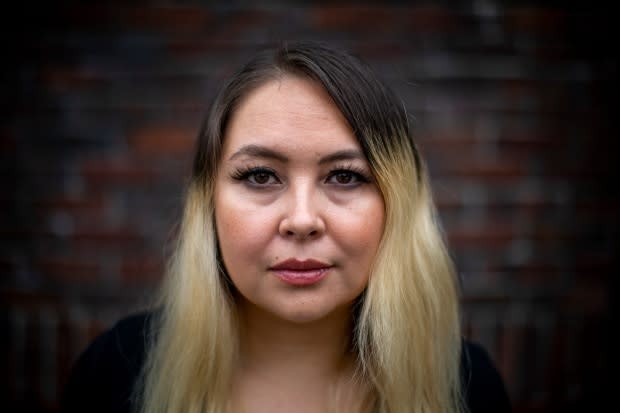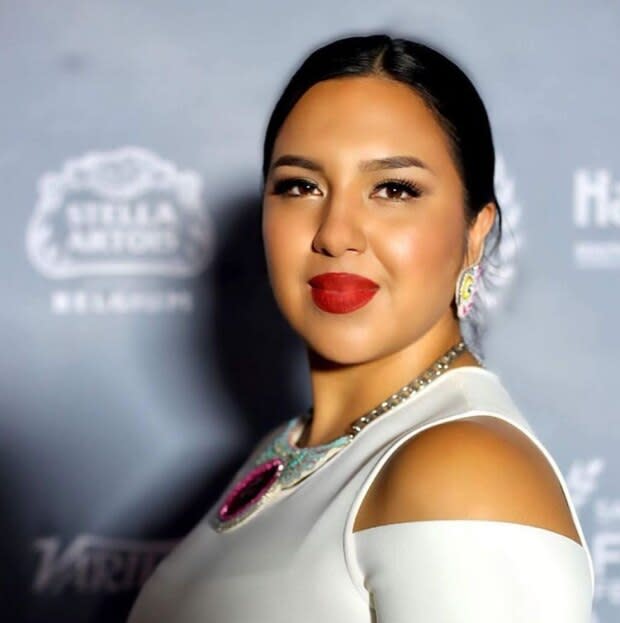'I believe you': Indigenous survivors speak out about sexual abuse, assault in their own communities
In the 10 days since Ian Campeau, former member of A Tribe Called Red, issued a Twitter apology for his "destructive behaviours and toxicity," Indigenous women have come forward with their experiences with the former DJ — and to talk more broadly about misogyny, abuse and assault in their own communities.
Polaris Prize winner Lido Pimento wrote a Facebook post alleging Campeau made unwanted advances toward her and used his fame and success to "prey on innocent people."
Roseanne Supernault, a Cree and Métis actress who took to Instagram to post allegations about Campeau aggressively coaxing her to have sex with him, says silence — for victims or witnesses — is no longer an option.
"There is this bystander culture that is so incredibly toxic," said Supernault.
Indigenous perpetrators, she says, have sometimes been protected by those in Indigenous communities out of a desire to protect the community and a fear of furthering the already present racism, shame and blame sustained by colonization.
"I would initially just jump to protecting my family, protecting the people around me, instead of holding them accountable," Supernault said.
Now, she's taken a hard line to protect victims rather than offenders.
"We have to let [offenders] learn their lesson and I will step forward and tell any victim I believe them," Supernault said.
Colonization and toxic masculinity
Lauraleigh Paul, who came forward in 2018 alleging The Revenant actor Duane Howard had sexually assaulted her when she was barely 16 years old, agrees with Supernault, saying it's important to look at the roots of toxic masculinity and rape culture.
"Colonization came about and implemented these toxic ideologies within our nations and communities and the oppression was very real," Paul said from her home in Vancouver.

She says in colonial times, at the height and in the fallout of residential schools and the Sixties Scoop, Indigenous people went into survival mode and had very little support to get help for intergenerational trauma.
"Silence was their survival tool," Paul said.
"It's been kept quiet for so long and that worked for generations past, but it's not going to work for future generations."
She says there is a lack of fairness in the justice system for Indigenous people, and accountability has been difficult to obtain.
Paul says, as a child, she and her family took a high profile Indigenous leader to court and, while was charged, the justice system, the media and her own community treated her as if she was to blame for his behaviour and the charges.
'Hold them accountable'
Paul and other Indigenous women are now looking at ways to hold abusers to account. She and Supernault have used social media as a means to achieve accountability, while others have been proponents of restorative justice or fought for ways to strengthen the current justice system.
Rachelle George, a filmmaker and poet of the Squamish and Tsleil-Waututh nations, says for too long victims have felt afraid to speak out, but it's time for the abusers to be afraid to abuse.
"Maybe they'll look at somebody they want to abuse and get scared ... and think, 'I can do 20 years in jail if I do this,'" said George, who is a survivor of sexual abuse.

George, who is the granddaughter of Chief Dan George, says if more survivors came forward, it would be safer for others to also speak out.
"It's hard to be the first to come forward, but until you do, there will be no change," George said.
Supernault is a strong believer in restorative justice.
"I'm not making excuses for these men and their behaviour, but if we forgive them and hold them accountable that's where that healing can happen and we can't do that if we remain silent," she said.
She believes sexual assault and abuse can be lethal.
"So many of us take these wounds and internalize them and inflict them on ourselves," Supernault said.
She believes survivors benefit from building a close tight-knit support system, to prevent suicide and addictions.
"Please stay alive," she said.
Paul — whose post about a once rising star in Hollywood sexually assaulting her led to him losing jobs and credibility in the industry — wants survivors to know they are not alone.
"I believe you," she said.
"And I believe in you. You didn't deserve what happened to you. You are not alone and you can rise above this."

